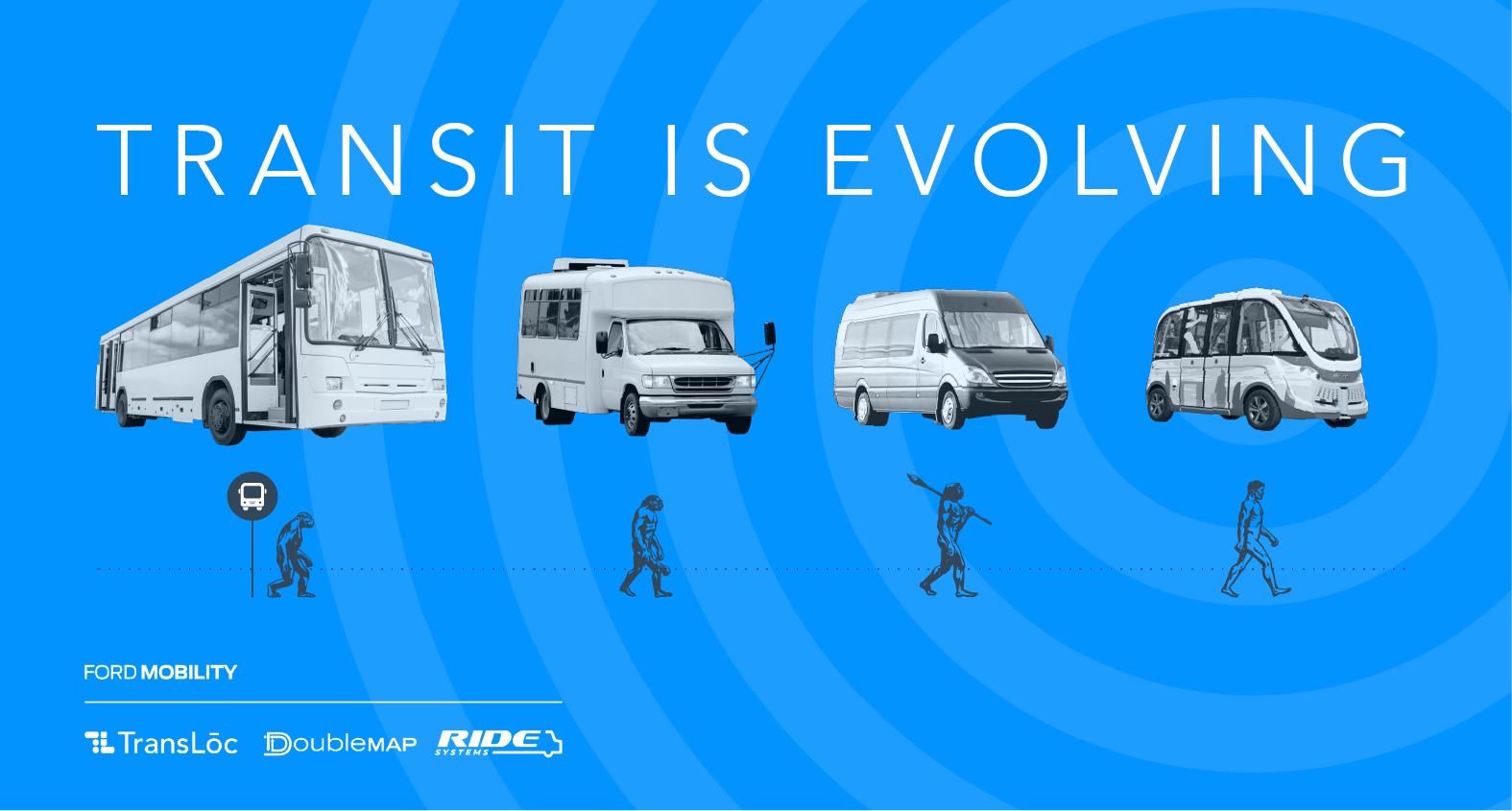
Ever since the first time someone said “maybe there’s a better way than just relying on my own two feet,” humankind has sought to move faster, farther, and more efficiently. Fast-forward to 2020 and transit is still evolving. Trends like vehicle electrification innovation, the shifting from fixed to flexible modes, and an increase in public-private partnerships have altered the landscape of mobility and given life to new technologies and new solutions.
Regardless of COVID-19 and the unprecedented events of 2020, these trends will continue. In fact, it is during these times – when our world is uncontrollably turned upside down – that trends not only continue, but accelerate and amplify. Derek Thompson, host of the podcast Crazy/Genius, captures this sentiment in a recent article published in The Atlantic:
Some of these changes are violent interruptions to modern life, like the shuttering of gyms and cessation of sit-down restaurant service. But in the long-term, COVID-19 probably won’t invent new behaviors and habits out of thin air as much as it will accelerate a number of preexisting trends.
A specific example of this was addressed during last week’s ACT Emerging Mobility Virtual Summit—the movement from fixed to flexible transportation options. With fewer people moving through the transportation system, there’s a chance for agencies to take stock of the service they offer and look to iterate and improve. Flexible transportation options afford agencies the opportunity to leverage their existing assets to do more than just move people to and from work. This leaves agencies to ask questions such as, could small package and grocery delivery be in the future of our existing service offerings?
An increased flexibility in our transportation networks will only work with an increased flexibility in our own creativity and ingenuity. ACT’s recent fully-remote conference was an exercise in this type of critical thinking and positive execution, and showcased the possibilities in taking advantage of new trends. Moving the conversation online got participants thinking about how else our professional flexibility will be tested. Given the recent increase in working from home, how does an organization focused on folks commuting to and from work continue to have an impact? The answer is above: the flexibility to have meaningful conversations to drive real change.
Beyond fixed-to-flexible transportation, the current economic environment was a prime topic of conversation. Given the worldly constraints and the essential nature of public transportation and those who use it, how do we properly support both a functioning transportation system and the people who need it the most? Some cities, such as Columbia, South Carolina and Kansas City, Missouri, have gone fare-free: offering some or all of the public transit system at no cost to their riders. Although this is a sacrifice to the bottom-line, it is one that has already yielded both positive community response and an increase in ridership.
The bottom line is that COVID-19 has accelerated the evolution of transit, and reinforced its importance on our people and our economy. Now more than ever, our quality as transit professionals is measured by the actions we take and the positive changes we help bring about. These changes must happen in a timely, responsible manner, and those of us in the private sector need to step-up and do what’s right for the people we serve: transit agencies and the people who use them.
We offer an expertly designed service to help you move people safely, reliably, and efficiently, giving riders and drivers the service and peace of mind they deserve. Learn more about our Creating Safe Services program here and how you can apply today.